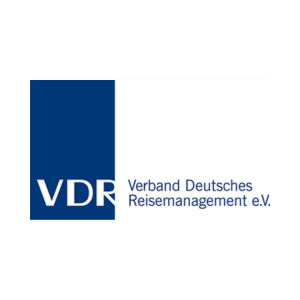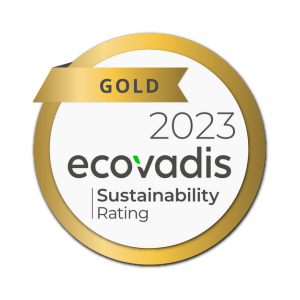REED & MACKAY HAS LAUNCHED ITS ‚LET’S TALK…‘ SERIES OF EDUCATIONAL BRIEFINGS TO HELP CLIENTS TRAVEL MORE SUSTAINABLY.
LONDON 23 SEPTEMBER 2022 — Reed & Mackay, the global service leader for corporate travel and event management, launched its ‘Let’s Talk…’ series of educational briefings yesterday, kickstarting with its work in the sustainability sphere and its global partnership with Neste, the world’s leading sustainable aviation fuel (SAF) producer.
Reed & Mackay International Development and Sustainability Director, Chris Truss, Neste’s Head of Programs & Partnerships, Renewable Aviation, Susanne Bouma, and Reed & Mackay Advisory Partner Ian Ferguson, shared their experience and knowledge with clients on capturing travel emissions data and setting targets; managing and reducing emissions through policy and awareness; and reducing emissions with sustainable aviation fuel and Neste’s MY SAF in particular.
“As the UK government looks to introduce a new mandate on the use of SAF, and as European aviation groups have called for an EU-wide mandate on its use, now is also the time for corporates to start thinking about putting their carbon reduction strategies in place,” Truss said.
“We take sustainability very seriously at Reed & Mackay; in the last 18 months we have committed to the UN Global Compact; progressed from a bronze to a gold EcoVadis rating, and released our first-ever sustainability report – with more key announcements and activities to be announced shortly,” Truss added.
A STRONG PARTNERSHIP WITH NESTE
This was Reed & Mackay’s first face-to-face sustainable travel session since Reed & Mackay and TripActions announced its partnership with Neste last year. The partnership was the first time a TMC offered clients the option to buy SAF at scale.
SAF is made from 100% renewable waste and residue raw materials (for example, used cooking oil). Using SAF can reduce greenhouse gas emissions by up to 80% over the fuel’s life cycle, compared to fossil fuel. And, as it is similar to kerosene, it can be used in current aircraft engines and aviation fuel infrastructure without any modifications.
“The pandemic gave everyone time to reflect about the role travel plays in business and, if we do need to travel, question how to do this more sustainably,” Bouma said. “This is reflective of the conversations we’ve been having across the industry.
„Sustainable travel is also a key part of the attraction and retention of talent, particularly with the younger generation. If people are travelling, the best way to reduce the emissions from air travel is by purchasing SAF – and offset the part you cannot reduce. Using SAF means recycling carbon already in the ecosystem, instead of adding carbon to the ecosystem by burning fossil sources.”
tackling challenges
Clients including specialist insurance company Beazley Group and law firms Withers International and Stephenson Harwood LLP, as well as other top clients from the legal, insurance and professional services sectors, discussed issues such as the current frustrations and road blockers they were experiencing within their sustainability programme.
Unanimously, the key challenges were cited as obtaining robust data for carbon reduction and offsetting reporting across all emission factors, as well as lack of awareness and dedicated staff resources to tackle and change organisational mindsets to travel.
Encouragingly, more than half the attendees polled at the event (53%) worked for organisations that have already set a reduction target specifically for emissions from business travel. However, more than three quarters (79%) said their organisations’ current travel policy isn’t aligned to its Environmental/Social/Governance (ESG) or sustainability programme.
“Considering how many people have travel-specific reduction targets, this event has revealed there’s still a lot of work to be done,” Ferguson said. “If clients haven’t aligned yet, we have recommendations as to how they can achieve this. With the 2030 target, just eight years away, it’s important to get ahead and track the Return On Sustainability Investment. We can proactively deliver advice, resource and evidential case studies that link tangible business benefits to help our clients position and deliver on their sustainability strategies.”
saf’s key role in carbon reduction
The briefing also highlighted how organisations can build the business case for SAF. “We take the carbon footprint of any organisation, discover by how much they’d like to reduce it, convert that into how much SAF will be needed, supply the physical fuel to the aviation sector and ensure the customer has a direct line of sight and credible reporting,” Bouma added.
“It’s a complex ecosystem but we can deliver the positive impact of SAF to the customer. SAF currently represents 0.1% of worldwide fuel consumption but, with the expected growth in air travel, the need for fuel for the aviation sector is likely to double by 2050. The International Air Transport Association estimates more than half of that should be SAF to be able to achieve the aviation industry’s emissions reduction goals.”
While carbon offsetting is still an important part of an overall approach to sustainability, it doesn’t reduce CO2 levels itself, Truss concluded. “To hit carbon reduction targets, the choices are stark; don’t travel as much or find ways of reducing your CO2 footprint – purchasing SAF is the only credible solution at play today – and is an important piece of this complex sustainability jigsaw.”
supporting clients
Reed & Mackay’s ‘Let’s Talk’ series is designed to provide updates on how it’s supporting clients in building a more responsible travel programme, and will be hosting future educational briefings on further topics on sustainability, as well as travel risk management and traveller wellbeing.
“It was encouraging to see so many of Reed & Mackay’s clients in attendance with a collective increase in enthusiasm in reducing business travel’s impact on the planet,” said Beazley Group’s Simon Robinson. “It was also great to see a consistent interest in using SAF to reduce the impact on carbon emissions, further complementing current carbon offsetting programmes.”
ready to find out more about how reed & mackay is making business travel more sustainable?
Contact hello@reedmackay.com and download our Sustainability and Responsible Business Report.
To find out more about SAF and Neste, contact susanne.bouma@neste.com
And, if you’d like to hear more about future ‘Let’s Talk’ educational briefings, please contact your client success manager.
ABOUT REED & MACKAY
Reed & Mackay delivers corporate travel and event solutions, helping businesses to connect effortlessly across the globe. A family business established 60 years ago, today it’s ranked 4th in Business Travel News Europe’s leading TMCs report, as part of the TripActions Group.
Specialising in travel for the financial, legal, insurance, energy and media sectors, Reed & Mackay sets the standard for service excellence while revolutionising corporate travel.
Reed & Mackay delivers the extraordinary in the travel and events arena. Combining innovation and scale – as part of the TripActions Group – with 60 years of in-depth travel knowledge, Reed & Mackay combines inspired service with state-of-the-art technology.
Its reputation for going the extra mile is backed by client retention rates of more than 97%.
Read more: www.reedmackay.com
ABOUT NESTE
Neste (NESTE, Nasdaq Helsinki) creates solutions for combating climate change and accelerating a shift to a circular economy. We refine waste, residues and innovative raw materials into renewable fuels and sustainable feedstock for plastics and other materials. We are the world’s leading producer of renewable diesel and sustainable aviation fuel, developing chemical recycling to combat the plastic waste challenge. We aim at helping customers to reduce greenhouse gas emissions with our renewable and circular solutions by at least 20 million tons annually by 2030. As a technologically advanced refiner of high-quality oil products with a commitment to reach carbon-neutral production by 2035, we are also introducing renewable and recycled raw materials such as waste plastic as refinery raw materials. We have consistently been included in the Dow Jones Sustainability Indices and the Global 100 list of the world’s most sustainable companies. In 2020, Neste’s revenue stood at EUR 11.8 billion, with 94% of the company’s comparable operating profit coming from renewable products. Read more: neste.com










